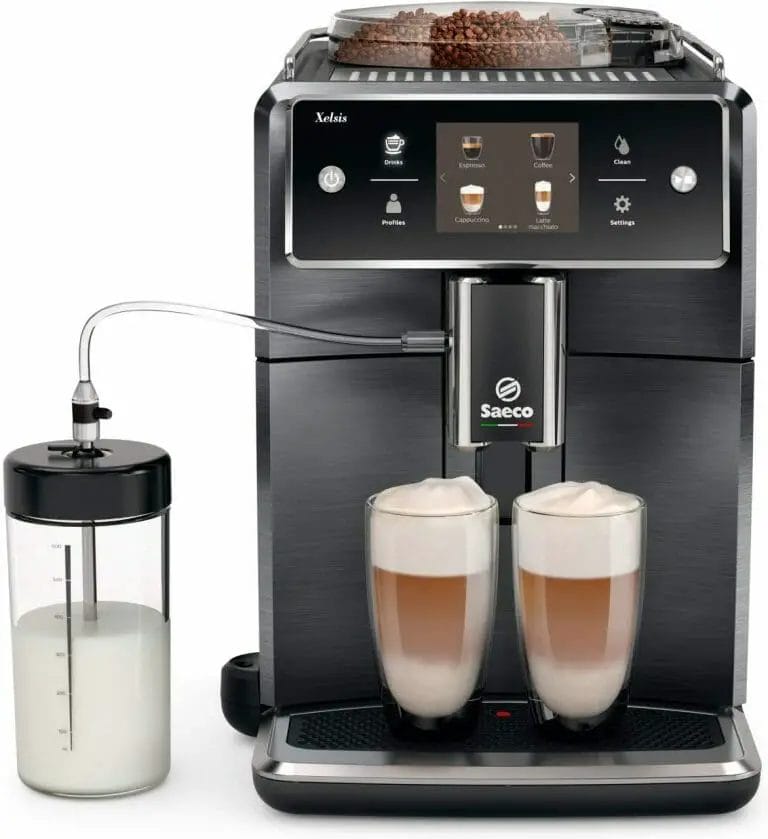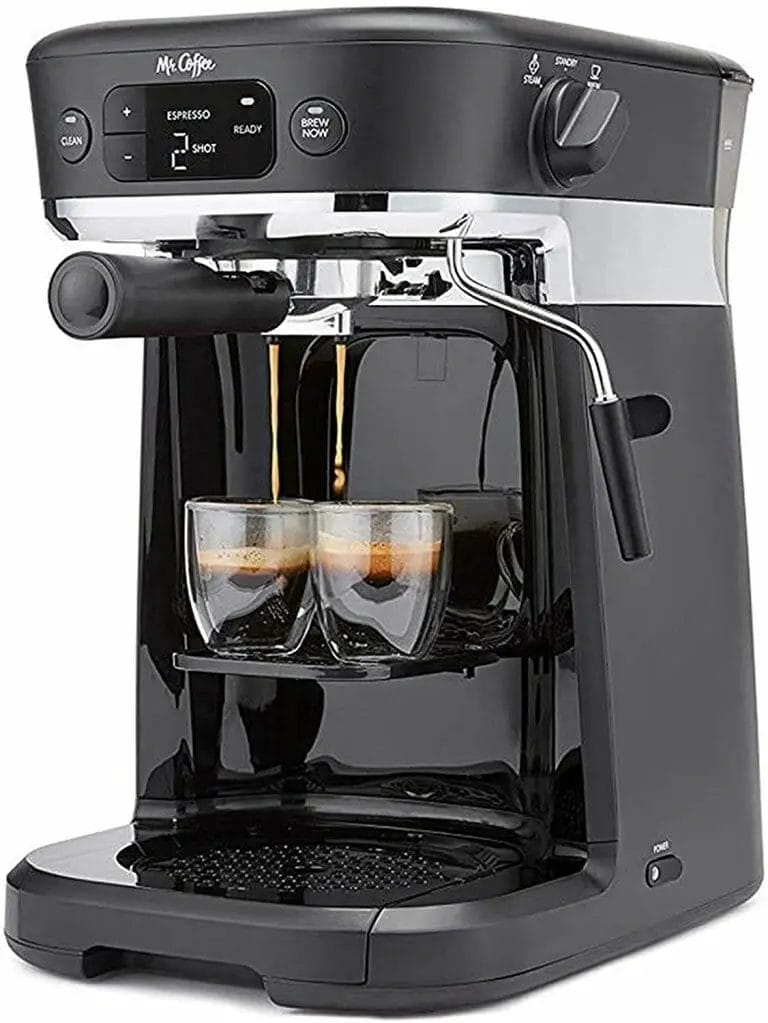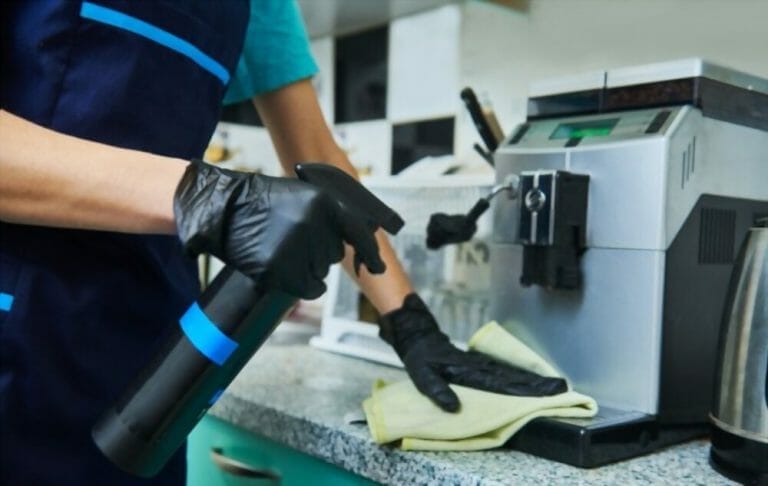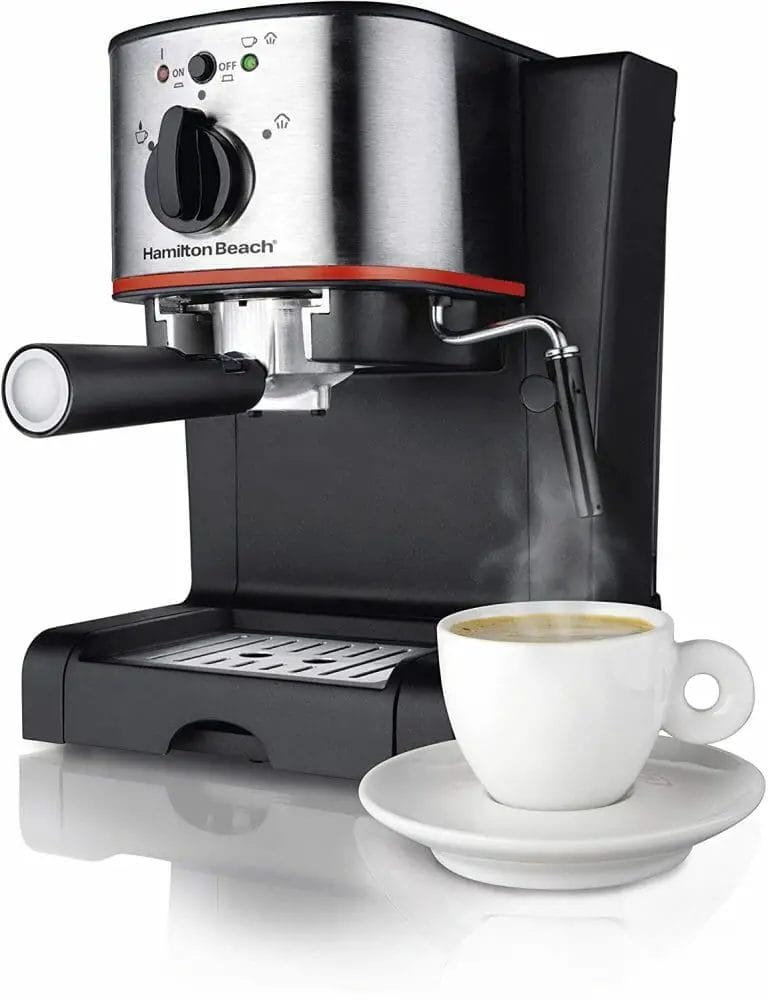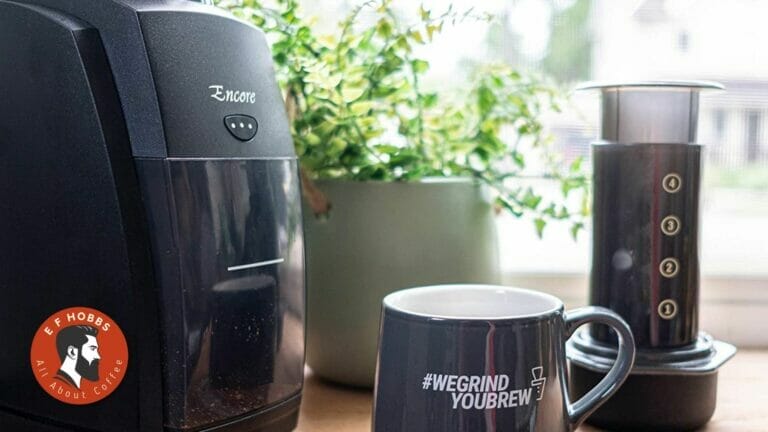How To Make A Descaling Solution For Coffee Machines
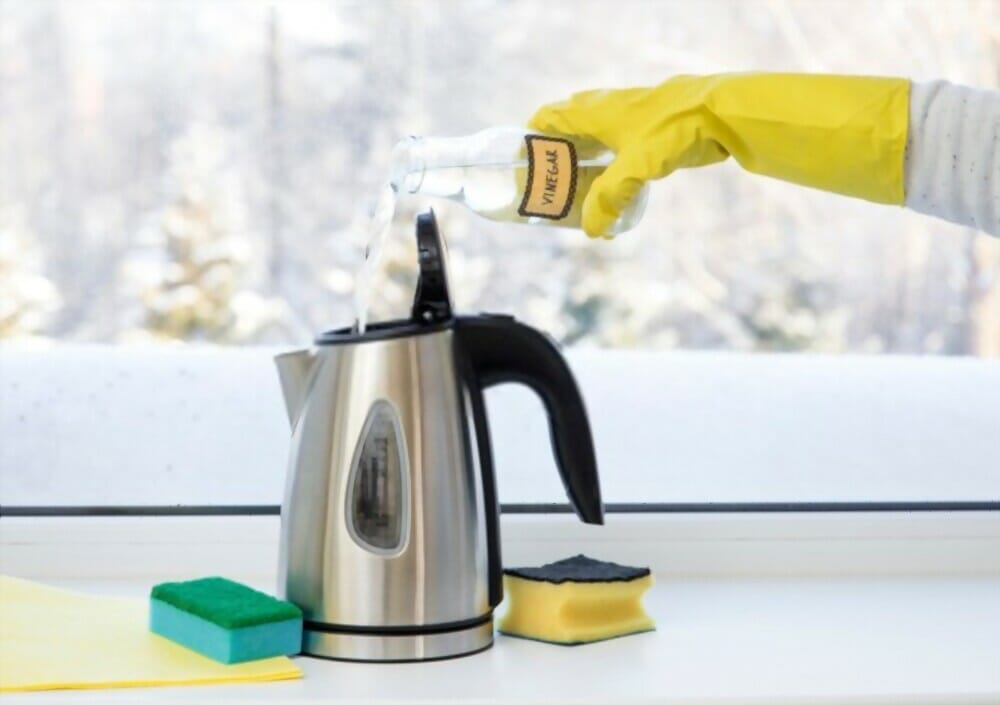
Want to keep your coffee machine working like new?
Then you need to give it a good descaling periodically to remove the calcium deposits. But don’t buy a solution, make your own homemade coffee descaler
There are many descaling agent for coffee machine– most of them are too expensive or contain dangerous chemicals like sodium hydroxide and sodium hypochlorite.
We'll show you how to make your homemade descaling solution that is affordable and safe for use with coffee machines.
Follow this article for valuable tips on how to make your keurig descaling solution diy. This homemade formula includes the natural ingredients calcium hydroxide, citric acid, and baking soda.
It is valid for all coffee machines, including Keurig, Breville, Bunn, Hamilton Beach Coffee Maker etc. Also, find out how to clean a coffee maker with citric acid.
Homemade coffee descaler- What Does It Mean To Descale A Coffee Maker?
Well, all the water that passes through our coffee machine collects deposits. It is a result of the process of heating water and its natural minerals.
This process is called “limescale”, and, in order not to have it develop into a problem, you should perform descaling regularly.
How Often Do I Have To Descale My Coffee Machine?
It usually depends on how hard your water is and how often you use your coffee maker.
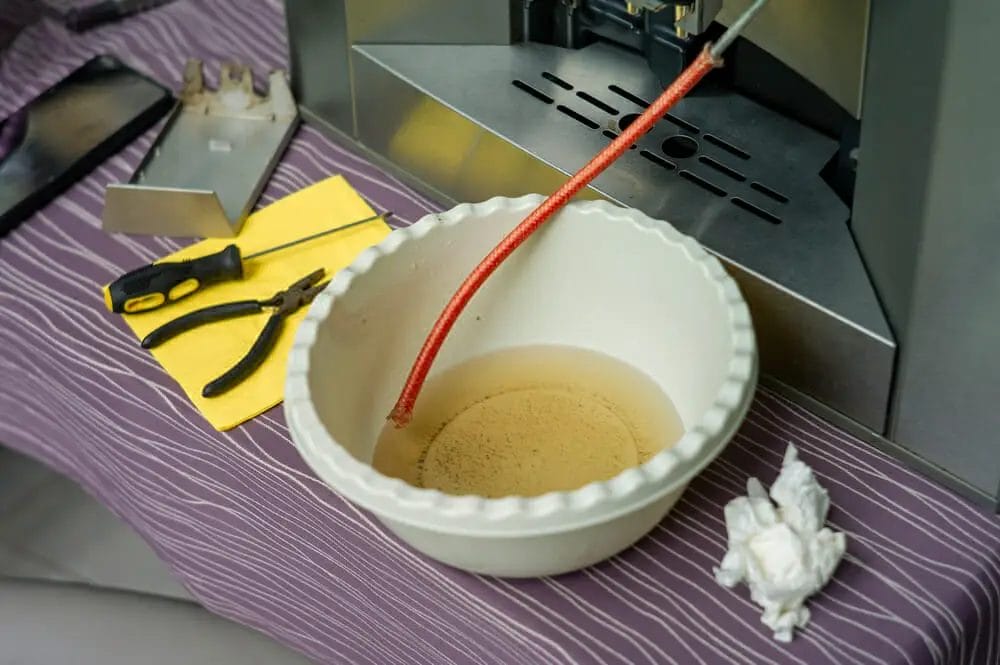
Usually in homes with hard water, you have to descale every 1-2 months. But if your machine has used it quite a lot of times, you may have to do it even more often.
However, the descaling process is easy and doesn’t take long at all, so it’s not a big deal.
How To Naturally Descale My Coffee Maker
Instead of using a ready-made solution, I recommend making your own. Homemade descaling solutions are affordable, and it’s entirely safe for the environment.
Here are the four ways you can choose to make a descaling solution.
Select Products Designed For Espresso Machines
Remember that certain descaling chemicals are more successful than others, and some acids can be corrosive, which is why it is essential to select a solution designed mainly for use with coffee makers.
Because the product is used to clean vital interior machine parts, it is critical to select descalers that will not damage or corrode your machine.
If these places corrode or get damaged, it will be impossible to determine the actual amount of the damage until it is too late, making it much more challenging to repair or replace these pieces at home.
Descaling agent for coffee machine:
Here is a list of some descaling agent for coffee machine:
Vinegar:
Vinegar is an acidic liquid that helps to descale and remove coffee stains. It can also remove limescale and mineral deposits that form in coffee machines, which is why it is used a lot by people who love drinking coffee.

Method:
- Fill half of your maker’s water reservoir with clean water.
- Add white vinegar until you fill the entire tank. It’s a 50/50 solution.
- Stir and start your decalcifying cycle.
- Dry the machine with a clean cloth.
how to clean a coffee maker with citric acid:
Citric acid is an organic acid that is commonly used in food preparation and cleaning purposes. It’s also one of the most common substances used to remove limescale from coffee makers because of its ability to dissolve calcium buildup on the water heating element of the machine.
If you don’t want to be surrounded by the smell of vinegar for hours, we recommend using citric acid as your cleaning solution.
Using citric acid will also ensure that you taste the coffee flavour the next time you prepare a cup of joe.
Here’s how to clean a coffee maker with citric acid:
- Mix 1.5 to 2 tablespoons of citric acid in a quart (1 litre) of warm water.
- Stir to dissolve the powder in the water.
- Add the solution to the water tank and start the descaling process according to the instructions provided by your machine’s manufacturer (usually available in its booklet).
Baking Soda
You can also use baking soda, an alkaline powder made of sodium bicarbonate and water. It’s a good descaling agent due to its ability to remove coffee stains and other scale deposits in the coffee maker.
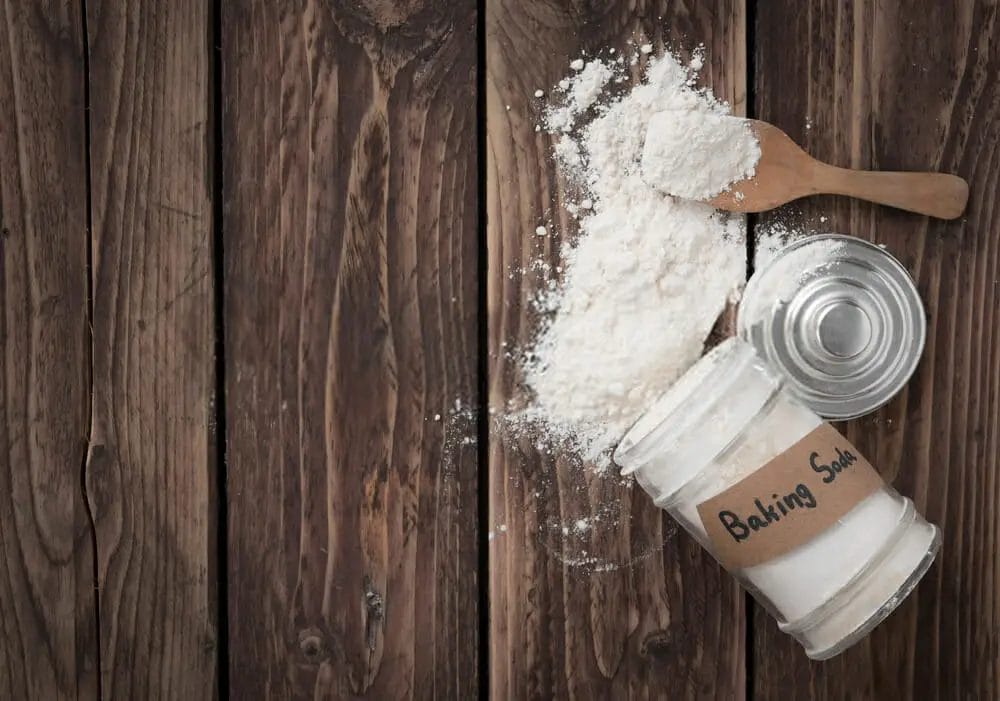
Method:
- Place two tablespoons of baking soda in a gallon (4 litres) of water.
- Stir the mix well, and then turn on your machine.
Keurig descaling solution diy:
Some of the keurig descaling solution diy are:
Lemon:
Lemon juice is another way to descale your coffee machine. Its acidic properties remove limescale from coffee machines. However, it’s not very effective as it doesn’t dissolve hard deposits and has a shorter life than citric acid.

- Mix 1 cup (250 ml) of freshwater with ¼ cup (60 ml) of lemon juice.
- Stir well to make sure that the citric acid will mix with the water.
Pellets:
If your home has a water softener, you should have some pellets for the system lying around. Softening pellets make it easier to filter out minerals and other particles that might otherwise.
Method:
- Just pour some in the tank, wait for a few minutes, and then run the coffee machine as usual.
- The pellets are coated with citric acid, which should dissolve upon contact with water. If not, add them to a bucket of water and wait for a few minutes. The pellets will dissolve after that. Pour the water into the tank and run your machine as usual.
The Advantages And Disadvantages Of Cleaning A Coffee Maker With Vinegar Vs Descaler
Before deciding the method to employ for descaling your coffee maker, consider the following:
- The descaling procedure is the same regardless of the product.
- Vinegar is more widely accessible and less expensive than descaler.
- Descaler is designed mainly for descaling coffee pots and will keep the machine functioning smoothly.
- If you use vinegar instead of descaler, the manufacturer may refuse to honour a warranty.
Note: To avoid having to descale your coffee maker as frequently, try brewing with bottled or spring water instead of tap water.
Compatibility – Is This homemade descaling solution Good For Your Machine?
Many home-grade coffee makers have a decalcifier that bears the brand name of the machine.
This product is often highly costly and to be used once — for one descaling cycle.
It is why many owners of home coffee machines like Keurig, Nespresso, Gaggia, and others begin seeking additional information on the contents of those specialized solutions.
Of course, we want to know if we can genuinely produce such a thing at home or replace a cheaper option.
I performed a lot of studies and discovered what the primary components of such goods are.
As expected, all of them contain descaling agents, the most popular of which being citric acid, sulfamic acid, and lactic acid.
For example, Keurig’s descaling solution is primarily citric acid, whereas Nespresso’s is lactic.
Many home-grade coffee makers contain internal aluminium components that can rust if not correctly descaled. It might cause harm to your machine, which you would not want.
Corrosion inhibitors are used in such branded solutions to assure decalcification without causing damage to your manufacturer’s parts.
That is why, if you don’t mind the price, you should remain with them. Still, preparing your homemade descaling solution, such as the one mentioned above, will suffice.
It’s all about concentration and the
PROCESS IS SIMPLE, SAFE AND THOROUGH: Mix 1 bottle with 600ml-700ml of water, pour into the machine water tank and brew, repeat the process using just water. (amazon.com)
Flavour Of Coffee
It’s preferable to use citric acid or lactic acid-based descaler because vinegar-based solutions have a strong odour.
In addition, the scent of vinegar might be challenging to remove from the machine, causing difficulties not only with the coffee maker but also with the smell and flavour of your drinks.
Choose odourless goods and make sure to rinse the machine many times before making a coffee after using a machine descaler.
Homemade coffee descaler- Conclusion
If you want your home made coffee maker to run like new, a homemade descaling solution is your answer. It’s a quick process, easy to do, and safe for your coffee maker.
It’s an excellent way to make your coffee maker last longer because you don’t have to pay for repair prices or clean the machine.
However, it is essential to keep them clean all the time because if it is not adequately cared for, the device will start to damage, and you will have problems with it.
Moreover, Citric acid is also the best descaling agent for coffee machine. Follow the above steps for how to clean a coffee maker with citric acid or else make your own keurig descaling solution diy in minutes.

